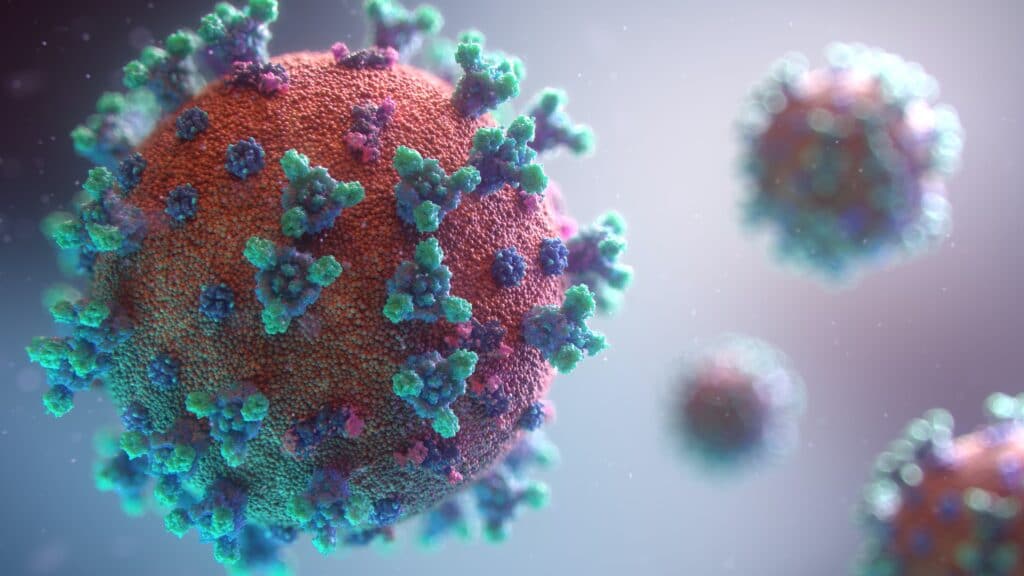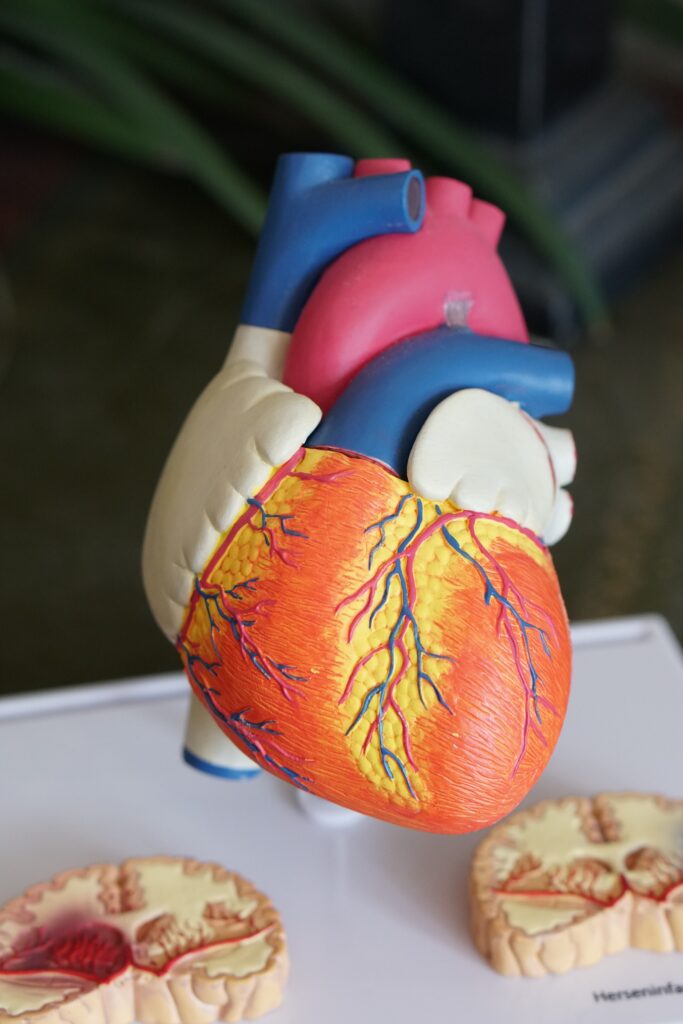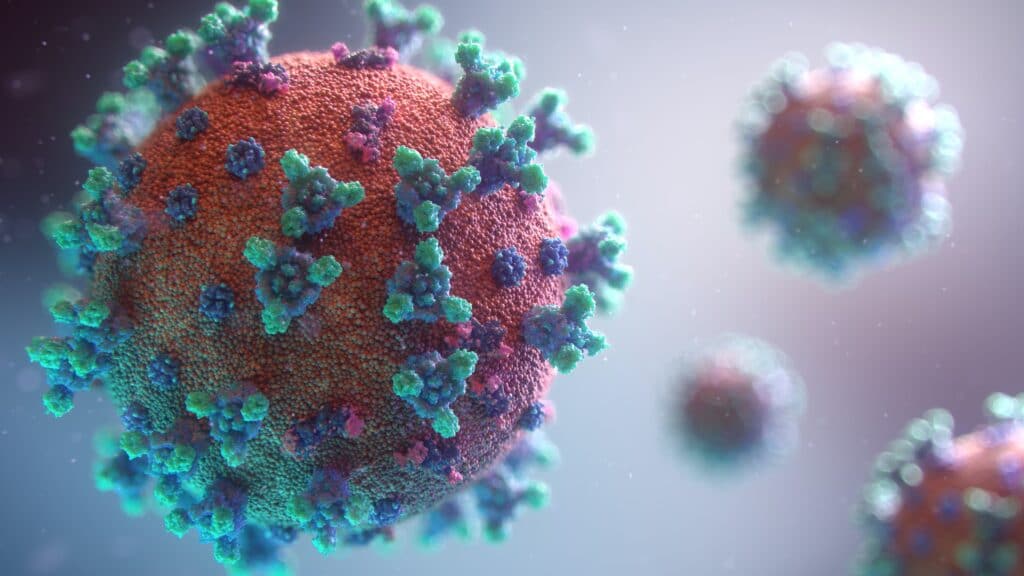How Obesity And Other Conditions IncreaseYour Risk Of Developing COVID-19
COVID-19 disease is caused by a novel coronavirus severe acute respiratory syndrome coronavirus 2 (SARS-COV-2) originating in the Wuhan province of china. The first human infection was reported in Dec 2019, and since then, the disease has spread at an alarming speed and magnitude to become the greatest healthcare concern of the 21st century.

Worldwide, as of 2 August 2021, there have been 198,234,951 confirmed cases of COVID-19, including 4,227,359 deaths, reported to WHO. As of 28 July 2021, a total of 3,839,816,037 vaccine doses have been administered.
Worldwide, as of 2 August 2021, there have been 198,234,951 confirmed cases of COVID-19,
WHO
As stated by the CDC (Centers for Disease Control and Prevention), people of any age with certain comorbidities are more likely to get infected from COVID-19. Getting infected actively demonstrates:
- Hospitalization
- Admission to Intensive care unit
- Mechanical ventilation to help them breathe
- Or, in severe cases, death.
Medical Conditions in Adults that may increase the risk of getting COVID-19

- Cancer: Treatments for many types of cancer, such as Chemotherapy and Radiotherapy, can weaken your body’s immune system to fight off disease.
- Chronic lung diseases such as cystic fibrosis, asthma, Chronic obstructive pulmonary disease (COPD), which includes emphysema and chronic bronchitis: People with COPD are at higher risk of getting seriously ill if they got infected with SARS-COV-2.
- Chronic kidney disease (CKD): people who have had kidney transplants need to take immunosuppressive medicines. These medicines make the immune system less active to prevent the body from rejecting the transplant. This makes people with CKD more likely to get ill from COVID-19.
- Dementia and other nervous system conditions: patients with dementia and other neurological conditions such as encephalitis and stroke were at increased risk for COVID–19 compared to patients without dementia and other similar neurological conditions.
- Down syndrome: As per the study conducted by Annals of internal medicine of the United Kingdom, people with Down syndrome are four times more like to be hospitalized from COVID-19.
- HIV: Scientists are still learning about COVID-19 on how it affects people with HIV
- Heart diseases, such as coronary artery disease, heart failure, cardiomyopathy, or hypertension: The existence of underlying heart comorbidities in patients with COVID-19 is associated with an increased risk of death.
- Liver disease: People with pre-existing liver disease such as cirrhosis (scarring of the liver), hepatocellular carcinoma(HCC), hepatitis C are at higher risk of mortality as compared to people without any liver conditions.
- Pregnancy: Pregnant women as such do not seem to be at risk of getting affected by COVID-19. However, pregnant women who fall under advanced maternal age, are obese or overweight, and have comorbidities such as hypertension and diabetes are at high risk of getting seriously ill from COVID-19 infection.
- Smoking: According to WHO Director-General Dr. Tedros Adhanom Ghebreyesus, people who smoke have up to 50% higher likelihood of developing severe disease and death from COVID-19.
- Substance use disorders such as the use of alcohol, opioid, or cocaine: Research on how substance use influences susceptibility is still in motion.
- Sickle cell disease: Individuals with sickle cell disease are more likely to already have high chances of various comorbidities, which puts them in a high-risk category.
- Type 1 or type 2 diabetes: Individuals with long-standing uncontrolled diabetes are at higher risk of getting severely ill from COVID-19 as compared to individuals with well-managed diabetes.
- Weakened immune system from solid organ transplants: Many diseases and treatments can cause a person to be immunocompromised. Primary immunodeficiency is always caused by genetic defects that can be inherited. Excess use of corticosteroids or other immunosuppressive medicines can lead to secondary, also known as acquired immunodeficiency.
- Overweight or obese.

Obesity is one of the most common, serious, and costly chronic diseases. Being obese is already linked to a large number of health problems, including heart and circulatory diseases. Obesity is one of the risk factors for many other serious chronic diseases, and it also increases the risk of severe illness from COVID-19.
4 million people dying each year as a result of being overweight or obese in 2017 according to the global burden of disease.
Several studies have observed that people with obesity are at a greater risk of severe disease and death due to COVID-19. According to the CDC, in 2008, the national estimated cost of obesity was an estimated $147 billion.
Obese adults are high-risk individuals during the COVID-19 pandemic. The particular reason for this circumstance is due to the fact that obesity is directly linked to impaired immune function and chronic inflammation, both of which could make it harder for the body to fight the COVID-19 infection. Obesity further decreases lung capacity. So, people with obesity are more likely to experience compromised lung function.
What makes obesity a critical risk factor for COVID-19?
People with obesity have increased chronicity of diseases among the lines of cardiovascular disease, renal insufficiency, Type 2 diabetes mellitus, certain types of cancers, and a significant contributor to endothelial dysfunction.
These conditions are serious risk factors for the exact purpose of disease severity and mortality associated with COVID-19. This makes obesity particularly ominous in COVID-19. However, there is enough evidence to suggest that obesity is an additional risk factor associated with worse outcomes in COVID-19 patients.
It is estimated by WHO that over 50% of the present world population is obese, which often leads to other underlying diseases.
WHO

For instance, in the first meta-analysis of its kind, published on 26 August in Obesity Reviews, a team of researchers combined data from scores of scholarly publications taking 399,000 patients into account. They found that people with obesity who got infected by SARS-COV-2 were 113% more likely than people of healthy weight to get admitted to the hospital, 74% more likely to be admitted to an ICU, and 48% more likely to die.
A collection of physiological and social factors drives those severe numbers. BMI (body mass index) still remains a strong independent risk factor for severe COVID-19, according to several studies that adjusted for age, sex, social class, diabetes, and heart conditions. BMI of 25 to 30 falls under overweight, 30 to 39 falls under the obese category, and 40 and above falls under severely obese, as per the data from the Centers for Disease Control and Prevention (CDC).
As per the study published by The International Journal of obesity on 95 admitted COVID-19 cases in Wuhan Union Hospital, obesity is the result of abnormal energy metabolism, which leads to weight gain and metabolic disorders, which in turn causes increased stress to bodily function.
In this study, patients showed higher levels of triglycerides, Low-density lipoproteins, and blood glucose than in non-obese patients. This metabolic abnormality may greatly influence disease progression and poor prognosis of COVID-19. Obesity provides a distinctive environment for the pathological process of the disease. It is characterized by a chronic, low-inflammatory state, which may lead to the production of weak immune cells, and the host becomes more vulnerable to diseases and less responsive to vaccinations, antivirals, and antimicrobial drugs.
Visceral fat (fat that is stored within the abdomen) puts force upon the diaphragm, causing that large muscle, which lies below the chest cavity, to impinge on the lungs and restrict airflow. This reduced lung volume leads to the collapse of airways in the lower lobes of the lungs, where more blood arrives for oxygenation than in the upper lobes.
There are several other issues that are associated with the above-mentioned circumstance. To begin with, the blood of obese people has an increased tendency to clot in contrast to healthy individuals. In healthy individuals, the endothelial cells that line blood vessels don’t allow the blood to clot. COVID-19 infection damages the endothelial cells, which ultimately leads to activation of the coagulation system. Further, obesity leads to an increase in blood clotting.
In March 2020, Frank Ruschitzka, who leads the cardiology department at University Hospital Zürich, observed that patients with COVID-19 disease had strange signs and symptoms, for what was then thought to be mainly a respiratory infection. After a few weeks, the first body was autopsied, which revealed tiny clots and dead cells that blocked the capillaries (small blood vessels) of the lungs and caused inflammation of blood vessels that supplied other organs.
Even borderline excess weight can be a risk factor for severe COVID-19, according to a recent warning issued by the CDC.
What can we do?

Treating obesity can be intriguing. Obesity indeed is a complicated condition with many contributing factors. Availability of healthy and affordable foods, carrying out the standard operating procedure for your own as well as other’s safety, access to healthcare for everyone, and other factors can influence obesity. Getting your weight to a healthier side is necessary for well-being. There are certain steps that can be taken, especially to reduce the obesity-related risk of COVID-19. These are as follows:
- Bringing people together to plan and carry out local, culturally tailor-made interventions to address poor nutrition, physical inactivity, and use of tobacco
- Promoting healthier food and beverage choices in children, schools, offices, hospitals, and public places.
- Increase in availability of healthy foods by connecting producers with retailers and organizations such as daycare, schools, and hospitals.
- Developing public places that connect footpaths, bicycle paths, and public transportation with homes, early care and education settings, schools, parks, and offices.
- Establishing early screening interventions for obesity and access to healthy lifestyle programs for children and their families.
In addition to the steps mentioned above, these are the changes that everybody should make in their lifestyle during this pandemic in order to protect themselves and their loved ones. These are:
Nutrition

Eating healthy meals with plenty of fruits, vegetables, protein, and whole grains, as well as the appropriate amount of calories, is necessary for your health and well-being. This can help with weight loss and preventing weight gain. Good nutrition also enhances the body’s immune system.
Being physically active

Regular physical activity benefits both physically and mentally. It also helps with preventing weight gain and when combined with a calorie deficit, which further helps in weight loss. Physical activity also helps in the prevention of comorbidities that increase a person’s chances of having severe illnesses from COVID-19, such as hypertension and type 2 diabetes.
Getting adequate sleep
Lack of sleep has been linked to depression, anxiety as well an increase in the incidence of chronic diseases that may lead to severe illness from COVID-19, such as heart disease, type 2 diabetes mellitus, and obesity.
Coping with stress
Currently, with widespread stress and anxiety, as well as limited mobility because of social distancing during COVID-19, it may seem tougher to adopt healthy behaviors that are associated with weight loss. One should think of extra precautions — like staying home when you can — and weight management as self-care
Gradually, these actions can help people with obesity improve their overall health. And even if it results in moderate weight loss, there are other health benefits as well, such as improvements in blood pressure, cholesterol levels, and blood glucose levels. And with a healthy Body Mass Index, the risk of severe illness from COVID-19 is significantly reduced.
How to prevent COVID-19?

- Staying 6 feet away from others: Avoid close contact with people who have been diagnosed with COVID-19.
- Get Vaccinated: Get authorized COVID-19 as soon as possible.
- Avoid overcrowded areas and poorly ventilated areas: Being in crowds like in restaurants, bars, Gym, or cinema halls puts you at higher risk for COVID-19. If indoors, bring in fresh air by opening windows and doors, if possible
- Wash your hands properly: Wash your hands often with soap and water or use an alcohol-based sanitizer that has at least 60 % for at least 20 seconds, especially after you have been in a public place or after sneezing and coughing.
- Avoid touching eyes, nose, and mouth (The T zone): The T zone is made up of mucous membranes, which serve as a portal during entry of SARS-COV-2.
- Clean and disinfect: clean commonly touched surfaces daily. This includes door handles, laptops, phones, and sinks.
- Be alert for symptoms: Stay alert for fever, shortness of breath, and lack of smell and taste. Keep a check on your temperature if symptoms develop.
Takeaway
COVID-19 came into focus in the year 2020, when it killed millions of people worldwide. It is a contagious disease, but a few factors increase one's vulnerability to it. Among many such factors, one is obesity. This is a serious concern because, according to WHO, 50% of the world's population is overweight or obese.
Apart from taking other prevention measures for COVID-19, one should also focus on losing some weight.








